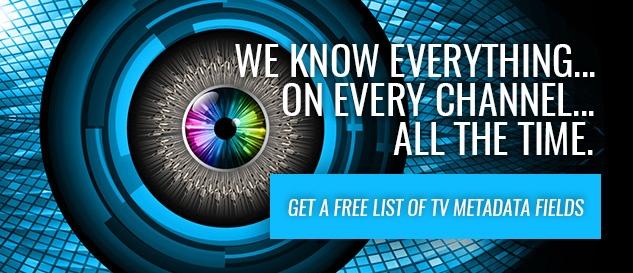On Tuesday, April 22, 2014, Internet television distribution
service Aereo, a small Brooklyn-based startup, will make an appearance in front
of the U.S. Supreme Court. Launched in February 2012, the business quickly made
waves in the broadcast industry with its subscription model, allowing users to
receive live programming from major networks like ABC, CBS, FOX and NBC streamed
over the web for an $8-12 monthly fee.
Those waves turned out to be tidal.
What is Aereo?
At the original press conference introducing Aereo to the
masses, Barry Diller, known for creating the Fox Broadcasting Company and USA
Broadcasting, and who serves on Aereo’s board, stated “it is my belief that the
world really deserves a la carte programming.”
CEO Chet Kanojia concurs, believing that it is “irrational that it should cost hundreds of dollars a month [to
watch TV],” and that overall, the current system is “abusive.”
The company utilizes an array of miniature antennas – two
per subscriber – to capture free broadcast television signals from the air.
They then retransmit the shows digitally, to whatever device the end user
desires. This allows someone without a cable subscription to receive their
local station on second screens, and they also acquire the ability to rewind and pause it, just
like a DVR.
This is a process that network affiliates themselves have
failed to adopt, as they charge cable companies to retransmit their offerings,
which amounts to billions in revenues.
The Legal Dispute
Station owners believe that Aereo is violating the Copyright
Act of 1976, infringing upon their content. They assert that like cable
companies, Aereo should be subject to paying fees for the transmission of their
material. Aereo contends that their arrangement of antennae circumvents the
legal label “public performance,” as technically each recipient is getting private
communications. Therein lies the conflict.
New York broadcasters sued Aereo in 2012, but the federal
judge ruled in favor of the defendant.
Of course, the stations quickly appealed the decision,
and in 2013 Aereo was again validated by the court.
Continuing to disagree with the courts’ rulings, last
autumn the broadcasters, along with the NFL and MLB, requested the Supremes
take up the case, and that’s where we are today.
The Potential Outcomes
Provided Aereo’s argument is successful, the aftermath will be intriguing. Here’s
what industry experts, legal analysts, and the participants themselves believe could happen:
“All hell breaks
loose in the TV industry” – Jim Nail, TV and online video analyst at Forrester
“The Aereo case could blow
up the economics of the broadcast TV business … you’ll still have network
television, but all the good programming will be on cable.” – John K. Hane, partner at D.C. law firm Pillsbury
“[Congress should] respond
by amending the Copyright Act to bring Aereo, and others like it, into the same
licensing regime as other [multichannel video programming distributors] … Congress
should take the opportunity to reform the current regime of retransmission
consent (as well as the closely-related regime for negotiating carriage of
non-broadcast networks), in order to create a more balanced marketplace that
serves consumers much better than the current one. – J.S. Greenfield, cable/telecom expert
“The option for copyright
holders will be to move [sporting events] to paid cable networks (such as ESPN
and TNT) where Aereo-like services cannot hijack and exploit their programming
without authorization.” – NFL and MLB, in an amicus brief to the U.S. Supreme Court
“One option could be
converting the Fox broadcast network to a pay channel, which we would do in
collaboration with both our content partners and affiliates.” – Fox COO Chase Carey
“It would launch a race by
cable and satellite companies to develop competing methods to capture
copyrighted content and re-sell it without paying for the right to do so.”
– ABC, in a brief
“If Aereo should work, if
they should win, which we don’t think will happen, we can go OTT [over the top]
with CBS.” – CBS CEO Leslie Moonves
“If the broadcasters
succeed, the consequences to American consumers and the cloud industry are
chilling … A decision against Aereo would upend and cripple the entire cloud
industry.” – Aereo
“If we lose we’re finished … Aereo would probably not be able to continue in
business … We could probably pay retransmission consent dollars if we could
make a deal with the broadcasters … but the value proposition would go out of
the game.” – media mogul Barry Diller
“If Aereo is found to be
legit, it will hasten the advent of unbundled, "good-enough" TV
solutions that would use a basic OTA broadcast bundle of programming (including
multi-cast channels) as an inexpensive gateway to other subscription
programming that could be added to it via over-the-top (OTT) and pay TV
subscription. Operators will waste no time in seeking to unbundle broadcast
signals from their channel packages using an OTA antenna-like approach like
Aereo’s (something Dish Network’s Hopper platform has been pushing for some
time).” – The Vertere Group
Indeed, it will be interesting to see the outcome upon
which the Justices arrive, and how each side reacts. To keep up with the case
as it develops, check out the SCOTUSblog.
Author: Brian Cameron
Author: Brian Cameron
Follow @FYITV








Major networks generate income by airing commercials. The fees collected depend on viewership numbers. So why are they complaining about a company who is attempting to increase their viewership without charging them for it.......
ReplyDelete